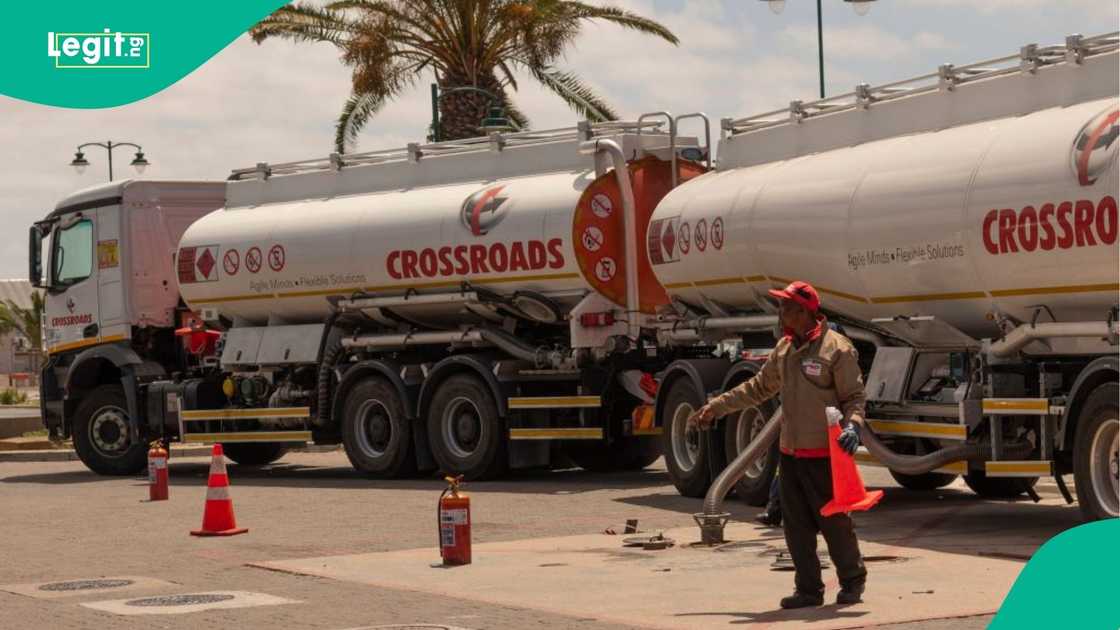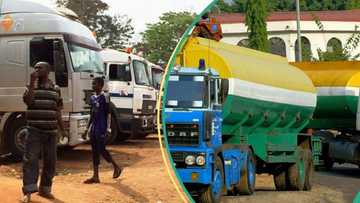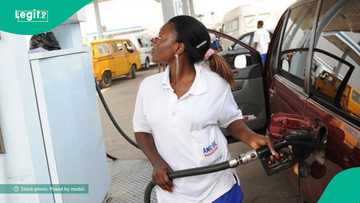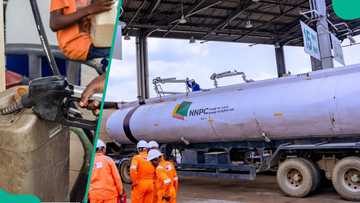Petroleum Tanker Drivers React to FG's Ban on 60,000-litre Fuel Trucks, Speak on Job Losses
- Petroleum tanker drivers have officially reacted to the federal government ban on 60,000-litre fuel tankers
- The National President of the Petroleum Tanker Drivers (PTD) lamented the number of members they had lost to fuel tanker accidents
- The PTD president also spoke about the potential job losses that could happen when the directive takes effect
CHECK OUT: Education is Your Right! Don’t Let Social Norms Hold You Back. Learn Online with LEGIT. Enroll Now!
Legit.ng journalist Ruth Okwumbu-Imafidon has over a decade of experience in business reporting across digital and mainstream media.
In an unexpected move, Mr. Augustine Egbon, the National President, Petroleum Tankers Drivers (PTD), a branch of NUPENG, commended FG for the new directive.
Egbon noted that over time, the fuel tanker investors have been more concerned about their profits than the safety of Nigerians or the petroleum tanker drivers.
He narrated how they moved from 27,000-litre trucks in the 1980s to 30,000, 45,000 and 60,000-litre trucks over the years, without considering how the weight of these tankers could affect others.

Source: Getty Images
FG bans 60,000-litre fuel trucks, more to come
Recall that the federal government has finally taken action on fuel tanker accidents leading to the loss of lives and properties.
The NMDPRA says it is adopting a phased approach which begins with the ban on 60,000-litre fuel tankers and higher volumes.
The regulator said implementation will begin on March 1, 2025, and hinted that more bans will happen before the end of 2025
PTD have lost members to tanker accidents
Egbon lamented how the fuel tanker accidents had led to the loss of lives for many of the association members, the SUN reports.
A recent Legit.ng analysis showed that within the last 15 years, Nigeria has experienced about 2500 fuel tanker crashes on the roads, with an estimated 3,445 fatalities resulting from it.
One of the most recent happened in January 2025 when a fuel tanker exploded near Dikko Junction in Suleja, Niger state, killing at least 98 people. Another happened the next weekend on January 25 at Ugwu Onyeama in Enugu state, with over 20 people burnt alive.

Source: Getty Images
Egbon, in his interview with the SUN, noted that several petroleum tanker drivers have died in such explosions.
PTD speak on job losses
Responding to questions about possible job losses resulting from the directive, Egbon noted that there would be potential job losses resulting from taking almost 2,000 tankers off the roads,
He noted, however, that the safety of lives is more important and there would always be opportunities for those who stay alive to explore and look for light-weight trucks.
He noted that the heavy-weight trucks compromise the safety of the tanker drivers as well as other road users in Nigeria.
With the high-capacity tankers off the road, the situation can be better managed as the petroleum tanker drivers will handle light-weight trucks better.
Investors to lose billions over FG fuel tanker ban
In related news, investors in the downstream petroleum sector have expressed concerns over the latest federal government directive to ban high-capacity trucks from operating in Nigeria.

Read also
Investors to lose N300 billion as FG’s ban on high-capacity fuel tankers takes effect in a few days
They noted that thousands of trucks are affected by this directive, most of which have been purchased with bank loans and need to be repaid.
They listed out other issues that the government needs to pay attention to, rather than banning fuel trucks to end fuel tanker accidents on Nigerian roads.
PAY ATTENTION: Сheck out news that is picked exactly for YOU ➡️ find the “Recommended for you” block on the home page and enjoy!
Source: Legit.ng




